Mass Central Rail Trail ride calls attention to work still to be done and the benefit of finishing the trail
A group riding through the Mass Central Rail Trail stopped briefly at the trailhead for the Assabet River Rail Trail in Hudson. Photo credit: Mass Parks for All.
Between September 20 and 22, a group of about a dozen through-riding trail ambassadors, along with day riders for each segment, cycled from Northampton to Boston along the Mass Central Rail Trail (MCRT) to highlight the need for funding to finish the 104-mile trail, the longest in New England.
The MCRT, with 60 miles open and several more miles in various stages of completion, still has some gaps in right-of-way ownership as well as infrastructure construction. The ride also highlighted the benefits, physical, emotional, and economic, this linear park brings to Massachusetts, especially in the 26 communities it runs through.
Having joined the Mass Central Rail Trail Coalition last January, Mass Parks for All (MPA) participated in this event Saturday and Sunday, the 21st and 22nd. On Saturday, we attended a dinner for riders at the Unitarian Universalist Church in Hudson to talk about how the upcoming Environmental Bond Bill the Healey-Driscoll Administration plans to file with the Legislature next year will be instrumental in getting capital funds to finish the project. In August, we expressed our desire for another bond bill and have since confirmed that this effort is under way while signing on to a coalition of environmental groups to advocate that our parks get a fair share of the funding.
The gubernatorial administration and the Legislature usually pass an environmental bond bill about every five years. The Legislature passed the last one, a $2.4 billion package, in 2018. With many unfunded capital projects along the MCRT route, including bridges and retrofitting a tunnel in Clinton in the offing, the time to begin trail completion advocacy is now.
The next morning MPA joined the ride along the recently constructed segment between Wilkins Street (Route 62) in Hudson to the trail’s intersection with the Bruce Freeman Rail Trail near Union Avenue in Sudbury, about a five-mile stretch. This new section continues further until it reaches the Eversource substation just east of Landham Road. Eversource built this segment out to rolled gravel in exchange for approval to run a new high voltage line from its Sudbury substation to the Hudson Light and Power generating plant on Cherry Street in Hudson, AKA the Sudbury to Hudson Reliability Project. The state Department of Conservation and Recreation (DCR) has the funds to pave this section and plans to go out to bid in the spring.
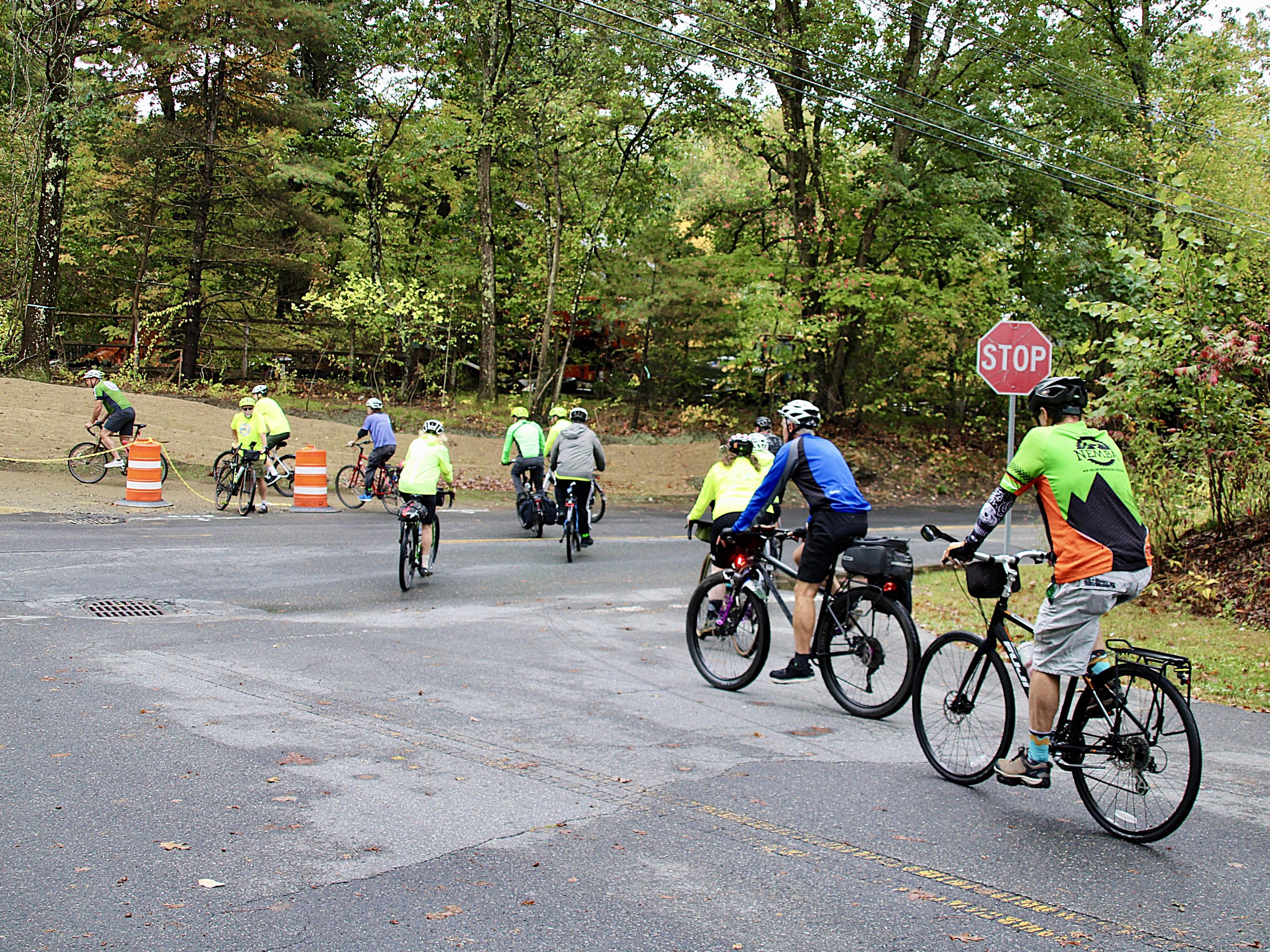
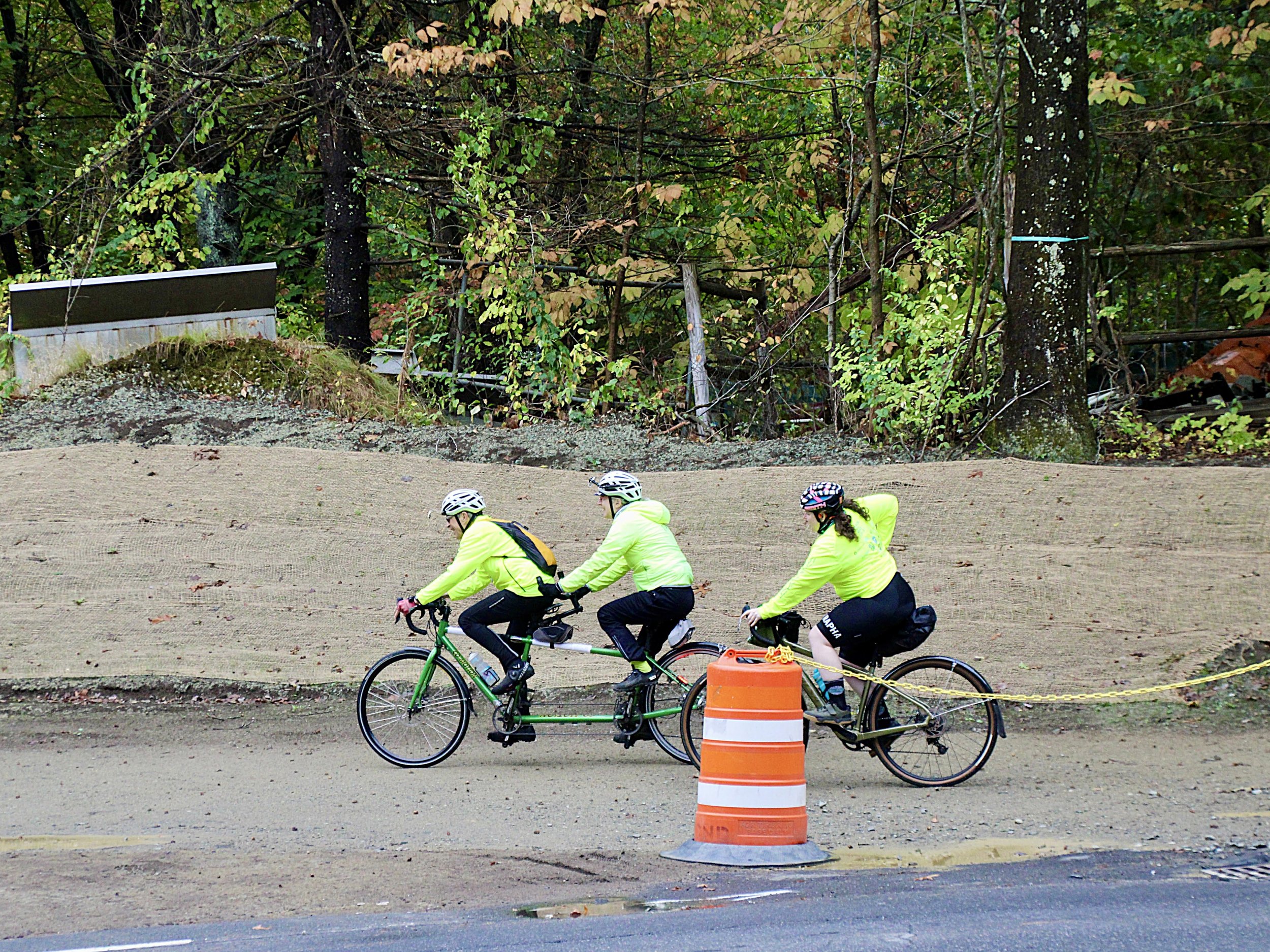
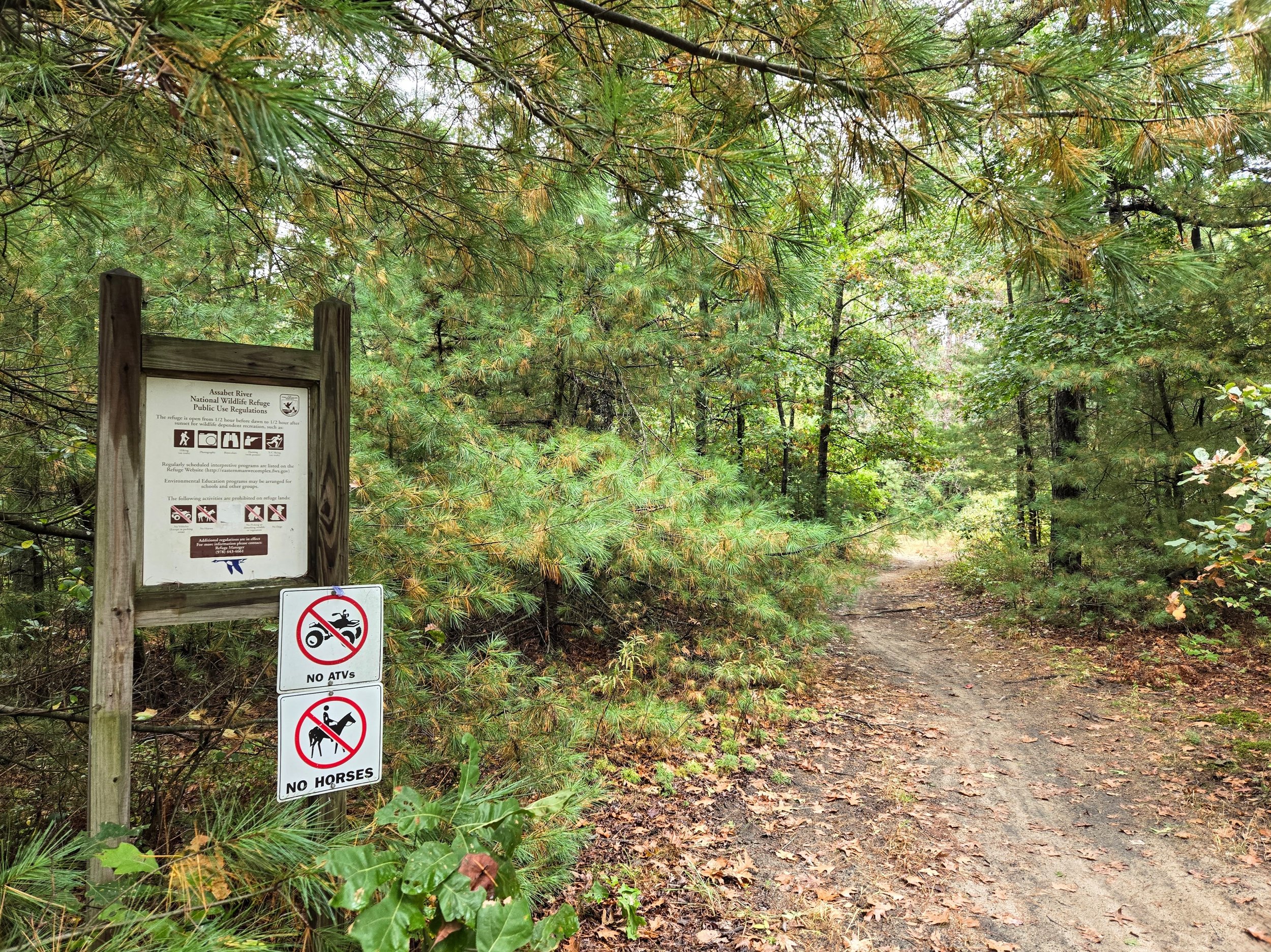
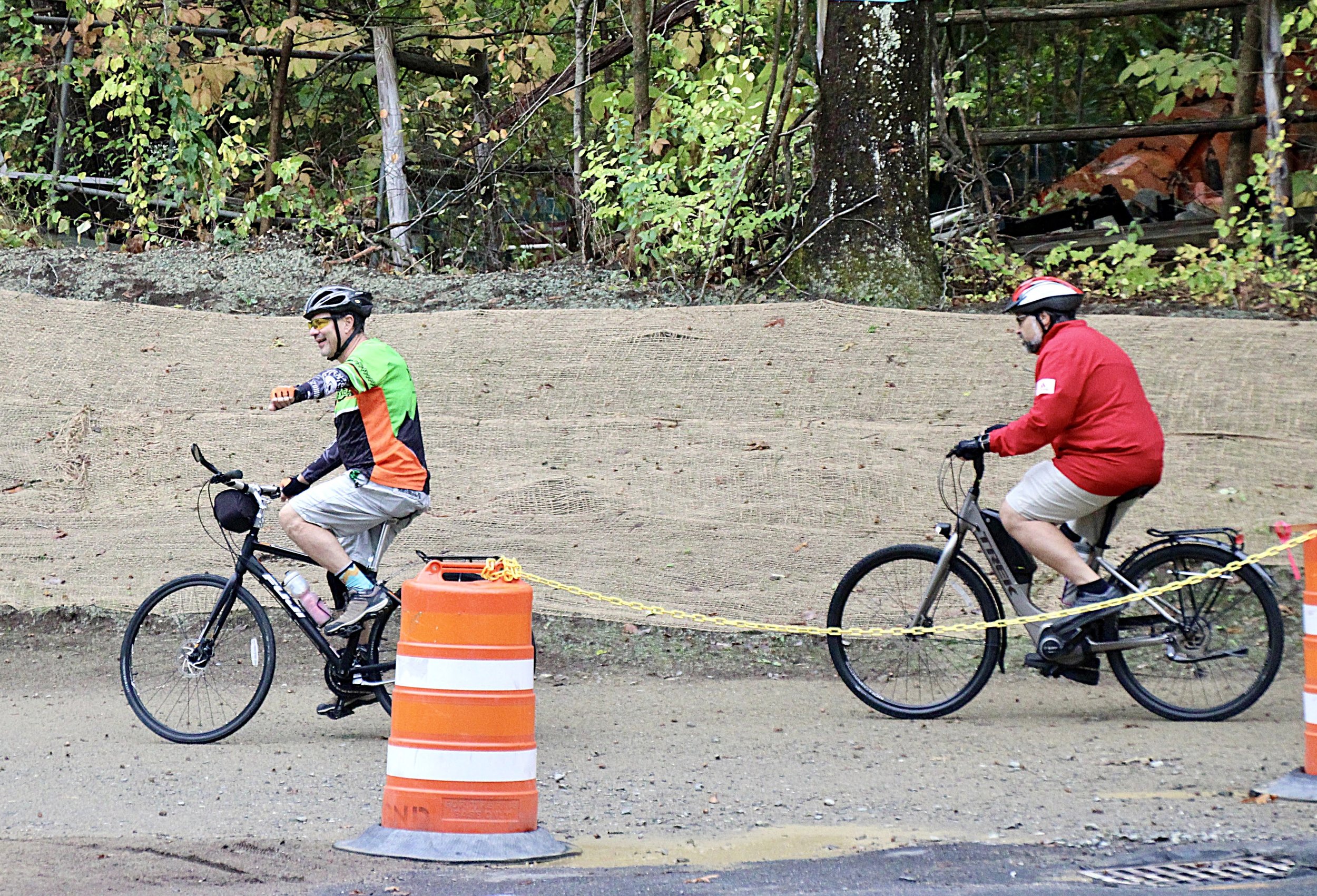
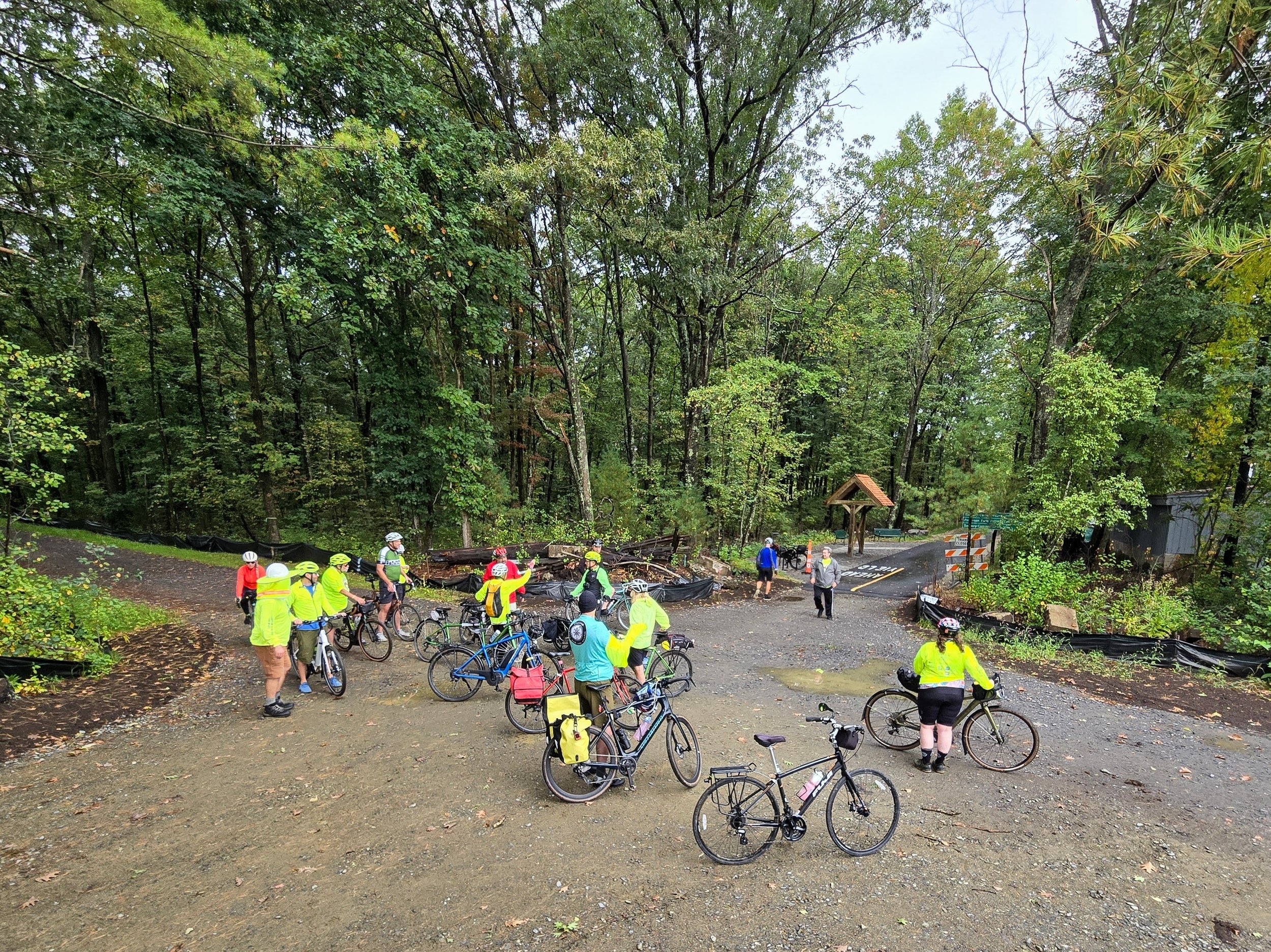
In terms of connecting other protected open space, this short segment, which begins at the end a the six-mile section of the Assabet River Rail Trail that runs from Marlborough to Hudson, you pass through sections of the Assabet River National Wildlife Refuge, the City of Marlborough’s Desert Natural Area and the Sudbury Valley Trustees Memorial Forest. All told, the MCRT runs right through more than 3,200 acres of contiguous open space to explore on foot, on bikes in some areas, and in the winter on snowshoes or cross-country skis. The latter two properties are currently undergoing a pitch pine-scrub oak landscape restoration project to encourage native plants and species, including the Eastern Whip-poor-will. The project involves clearing non-native plants and prescribed burning to restore the landscape left there by receding glaciers.
Traveling further east, once you reach the Freeman Trail, you can head north all the way to Lowell, or continue east toward Wayland, Weston and beyond, all without the benefit of a motorized vehicle of any kind, though there are unimproved sections in Wayland and Belmont. The town of Sudbury is in the process of extending the Freeman Trail further south, where eventually it will go into Framingham, which is also working on its portion.
The cross-state ride was a great way to call attention to the Mass Central, itself a linear park, and what it offers for recreation, transportation, and economic development across the state. Along its 104-mile run, it also crosses the New Haven & Northampton Canal Greenway, the Ware River Trail, and the Mid-State Trail, while passing through state parks, including Rutland State Park, and acres and acres of DCR watershed lands, many of which allow public access. So, in terms of carrying out MPA’s mission to renew, expand and connect parks, especially non-automotive connections between parks, this project is a prime example of all three segments of that mission, and we are happy to be a part of it at a critical time. Watch this space as we chart the progress toward completing this worthy project. For more information on the project, or to get involved in this effort, contact MCRT Coalition Chair Craig Della Penna at craigdp413@gmail.com.
Doug Pizzi is executive director of Mass Parks for All

